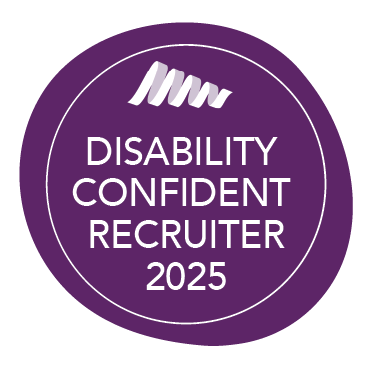Automatic language translation
Our website uses an automatic service to translate our content into different languages. These translations should be used as a guide only. See our Accessibility page for further information.
At the Department of Communities and Justice (DCJ), we are committed to providing adjustments for our candidates with disabilities to remove barriers and provide equal access to job opportunities, career development and learning opportunities.
An adjustment means a change to an assessment, work process, practice, procedure or environment. If you have a disability and you’re applying for a role with DCJ, an adjustment may help ensure you have an equal chance of success.
These adjustments include accessibility adjustments to all of our recruitment stages, to ensure everyone has an equal opportunity to demonstrate their knowledge, capability and experience. We also provide workplace adjustments after winning a role to ensure everyone can achieve their full potential.
DCJ can adjust any stage of your recruitment process, from preparing an application right through the assessment phase. We provide adjustments for disabilities that challenge physical and/or mental health.
There are many types of adjustments. The following are just a few examples you can request:
As a person with disability, you will know your needs best. Contact your Talent Acquisition Specialist at any time to ask questions or seek help, even at application stage.
If you’re application is progressed to the next stage, we recommend that you ask your recruiter about the type of assessments you may need to complete and the way they work. If you think any of them are likely to present a difficulty, ask to adjust an aspect, or if you can use a different assessment type or format completely. Your discussion with your recruiter will be completely confidential and will not disadvantage you.
Hiring managers will only learn the relevant details of the recruitment adjustment itself. Talk with your recruiter and we will find an alternative approach that helps you to participate equitably.
You do not need to ‘prove’ you have a disability to ask for any adjustments. The process we use is to test the inherent requirements of the role and everyone must meet this same standard; but how we test you can be changed any which way to help you best demonstrate what makes you right for the role.
An adjustment can help you to:
You can request an adjustment at any stage of the recruitment process – just chat to your recruiter. If they’re unsure, they can ask the hiring manager or the Inclusion and Diversity team.
Contact the Talent Acquisition team if the application process itself is challenging. You will find contact information at the bottom of the role advertisement under ‘Our Commitment to Diversity and Inclusion’.
If you are unable to locate this information, please refer to the ‘Contact us’ page on the DCJ Careers website.
If you would benefit from an adjustment in the next stage as well, let us know as part of completing your application.
If you progress through the application stage, the Talent Acquisition team will contact you to explain the process and types of assessments that will be used. They will also ask if you require any adjustments for the assessment and/or interview stages. If you’re not sure, it is a good idea to discuss the assessment in more depth to understand it and help you know what could be challenging for you.
If you have been advised that you are the preferred candidate following all of the assessments, there will be a few pre-employment checks that require completion before we can make a formal offer. These can include:
After these are successfully completed, the Talent Acquisition team will issue you a formal letter of offer. If you prefer this to be sent in a specific format, you can request this from the Talent Acquisition Specialist.
Once you accept the offer, the hiring manager will contact you to congratulate you and discuss details for your first day. You are encouraged to discuss and/or share any adjustments with your new manager that you think you might need to perform your role.
These adjustments can be your equipment, your workspace or a flexible working arrangement like your start and finish times. Early notice means we can try to have it all in place for the day you’re welcomed in to join us. Once you’re on board, you can record these adjustments in our Workplace Adjustment Passport, which means you don’t need to re-explain it all if you change roles or managers.
Finally, as part of the onboarding process, DCJ will prepare your IT system, payroll and building access. At this stage you can also share any adjustment requirements you will need to use this technology and perform the role.
You will also be asked to provide certain details to set you up for success for your first day with us. This will include information around your bank details, your workplace census information and your preferred superannuation fund.
Did you know that the Department of Communities and Justice (DCJ) NSW is a Disability Confident Recruiter? Watch this video to learn what this means and how it can help you.
Please see the following for advice and support about workplace adjustments:
DCJ is a proud gold member of the Australian Disability Network (ADN). DCJ is an accredited Disability Confident Recruiter and is an alum of Job Access.

Australian Disability Network (ADN) Disability Confident Recruiter 2025 Accreditation
Last updated: